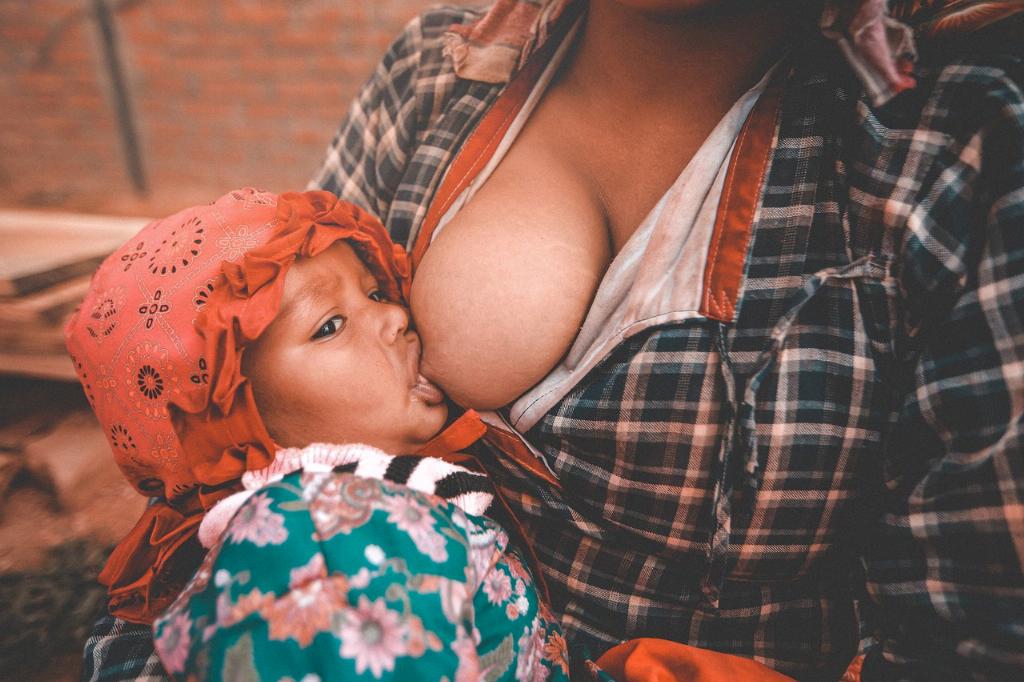As parents, we always strive to make sure our babies are well-fed and content. Yet, there are times when despite a full meal, your little one might still act hungry. This common scenario can leave many parents feeling perplexed and seeking answers.
Growth and Development: Fueling Your Baby’s Needs
One possible reason for your baby to continue acting hungry after breastfeeding is related to growth spurts. During these periods, babies go through rapid growth and development, which in turn increases their nutritional requirements. As a result, they may need to feed more frequently to meet their body’s demands.
Cluster Feeding: Meeting the Baby’s Hunger
Another factor to consider is cluster feeding. This feeding pattern involves your baby wanting to nurse more frequently for a period, often in the evenings. This behavior can help boost milk supply and ensure that your baby is getting enough nourishment.
Breastfeeding Efficiency: Understanding Your Baby’s Technique
Sometimes, babies may still act hungry after breastfeeding due to ineffective milk transfer. Your baby’s latch, sucking technique, or milk transfer ability could influence how satisfied they feel after a feeding session. Seeking support from a lactation consultant can help address these issues.
Comfort and Security: Beyond Nutrition
It’s important to recognize that babies may not always nurse solely for hunger. Breastfeeding provides comfort, security, and emotional bonding for your little one. Therefore, your baby might seek the breast for non-nutritive reasons even after a full feeding.
Environmental Factors: Recognizing External Influences
External factors such as temperature, noise, or surroundings can also impact your baby’s feeding behavior. Discomfort or distractions during feeding sessions can lead your baby to seem unsatisfied even after nursing. Creating a calm and nurturing environment can help improve feeding experiences.
Health Considerations: Addressing Potential Issues
In some cases, underlying health concerns like reflux, allergies, or tongue ties can affect your baby’s feeding habits. If you suspect any medical issues, consult with your pediatrician to rule out any potential obstacles that may be causing your baby to act hungry despite breastfeeding.
Adjusting Feeding Patterns: Flexibility and Observation
Monitoring your baby’s feeding cues and being flexible with feeding schedules can help you better understand their needs. By observing your baby’s behavior and responding to their cues, you can adapt your feeding routine to accommodate their hunger cues effectively.
Support and Guidance: Seeking Help When Needed
Remember, parenting is a learning journey, and it’s okay to seek support and guidance along the way. Whether it’s consulting with a lactation specialist, joining a support group, or talking to other parents, reaching out for help can provide valuable insights and reassurance.
Patience and Empathy: Nurturing Your Baby’s Growth
Lastly, approach the situation with patience and empathy. Your baby’s feeding patterns may fluctuate, and their behavior can change for various reasons. By responding with understanding and care, you create a nurturing environment that supports your baby’s growth and development.
Conclusion
Ultimately, there are several factors that can contribute to why your baby may still act hungry after breastfeeding. By considering growth spurts, cluster feeding, breastfeeding efficiency, comfort needs, environmental influences, health considerations, feeding adjustments, seeking support, and practicing patience, you can navigate this phase with confidence and understanding.

